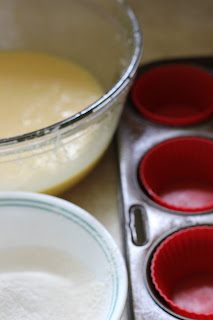Barcelona
Barcelona is an amazing hub of constant bars,cafes and restaurants. I didn't stray much past La Ramblas but within those streets were delicious morsels- even if you can't hide from the tourists.
To sample the ones to the right, visit
Sagardi near La Ramblas. A busy and well priced joint, floating with international visitors.

An extremely popular and simple tapas bar was
Can Paixano,
located not far from Barcelona's water front. It was packed, hot and
sweaty but the cava cooled you down and the Iberian ham rolls kept your
tummy satisfied.
I was lucky enough to participate in a cooking class and market tour with
Cook and Taste,
an extremely well thought out and tidy space. Our teacher took his art
seriously, but with a laugh. The day just flew by- we drank, we talked,
we cooked and of course we ate!
First was the tour of La Boqueria market off La Ramblas, housing many Catalonian culinary delights, to purchase the fresh produce for the class. We saw exotic fruits, an abundance of seafood including salted cod, wild mushrooms and a variety of Iberian hams.

Next up was the cooking class. A mixture of Australians, Americans, an English couple and the one New Zealander worked together to create a variety of dishes true to the Spanish cuisine. If any of these dishes appeal to you, I can email you the recipe (contact ginger.love.care@gmail.com).

On the menu was:
Pan con Tomate (Tomato bread)
Served with a hard, sharp cheese and Iberian ham (which is amazing- the best ham in the world!)
Anchoas a la Plancha con Melón y Vinagreta Suave de Aceitunas Verdes y Pepinillos (Griddled anchovies with melon and a light green olive and gherkin vinaigrette)
The melon is marinated in sweet dessert wine and lemon juice. Sounds like an "interesting" mix, but the flavours work so well together. My favourite dish of the day.
Sopa de Pimiento Rojo al Aroma de Azafrán Tostado con Atún (Red bell pepper soup, flavoured with toasted saffron and griddled tuna)
The peppers were gently roasted and the saffron toasted in foil over an element- bringing out the best in both of these ingredients.
Clam Escabeche (Clams in a acidic fish broth)
The broth was made using bits of seafood left to boil and infuse. This dish really makes the most of the seafood available in Barcelona.
Paella de Marisco (Seafood paella)
A classic. The best rice to use is a strachy and round- sushi rice in fact! Also suggested was not to stir the rice as it cooks, to make the most of the starch content.
Crema Catalana (Catalan cream)
Créme brulée's cousin... quite simply- creamy and crunchy!
Seville
This city holds a vibrant mixture of flamenco, mosaics and food.
There is definitely a love affair with pastries
going on in Spain. My favouite in Seville was located behind Plaza de
Toros: Los Angeles Confireria y Pasteleria. There was so much to choose from, in fact I went
back three times!

In this picture is a polvorón (a Spanish type of
shortbread). It is an ode to my Mother who taught me so much about the
Spanish cuisine.
Of course, it is mandatory to recommend a tapas bar. I enjoyed
Taberna el Papelón, on Seville's main tourist street. With that comes tourist prices, but an exciting and busy vibe to it. I ordered a refreshing sangria and Jambon focaccia- a classic dinner bite. Plus you got a free bag of little baguette shaped crackers. Score!

When I was stuck for what other foodie discoveries were in Seville, off to the internet I went. I came across
La Fiorentina, an artisan ice creamery recommended by
The Guardian. It has an unbelievable variety of original flavours- the best I've ever seen!
Madrid
Spain's capital city has many treasures- unfortunately I didn't discover many of these as it was constantly raining during my visit. Consequently I left my camera at the hotel (wasn't bidding on the success of my water lodged camera insurance claim), so I have no record of my foodie adventures. You will just have to take my word for it.
The tapas are world renowned in Madrid, with famous streets being
Calle del Almendro and Calle Cava Baja. A Basque pintxos bar in the area is Taberna Txacolina, a very popular destination with a delicious display. I highly recommend trying the caramelised goat's cheese, and the jamon, brie and jam combination- both served on toasted baguette. It is also customary to try some txakoli (a traditional sparkling wine).
Later on that night (restaurants, bars etc. open around 8pm and close in the early hours of the morning- the Spanish way of life), we visited the must-see Mercado de San Miguel. Absolutely amazing! Grab a sangria and have a wonder, you can spend hours in this place sampling all that's on display.
I was also hoping to do a Tapas Experience tour with New Madrid, but it was called off due to the rain. If you try it one day- let me know what it's like!
As you can see, there is much to say about the Spanish way of life and cuisine. Really, one blog post does it no justice- you have to experience it for yourself. I hope this has given you a starting point for ideas. I would love to hear from those who have been, so I make notes for my next trip!
Keep a look out for my next post- Chronicles of Europe: France.



































